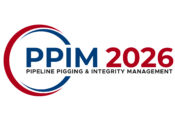COURSE SCHEDULE (both days)
7.30: Registration, breakfast, coffee
8.00 – 5.00: Course
It will be necessary to bring a laptop to this course.
OVERVIEW
This course will introduce hydrogen in the context of the energy transition. It begins with an overview of the history of hydrogen and its pivotal role in the need for decarbonization. Subjects such as the different production methods and uses of hydrogen, the need for hydrogen pipelines, and the differences between hydrogen and natural gas pipelines, will be covered. These variations are driven by the diverse characteristics of hydrogen and natural gas, including the embrittling impacts of gaseous hydrogen. The operational and risk concerns of hydrogen compared to natural gas will be evaluated and available code guidance on the conversion of natural gas pipelines will be summarized.
The theory of hydrogen embrittlement and its related cracking threats and effects on mechanical properties will be covered, as well as the relevant testing constraints and procedures. The course concluded with the impact of these variations on defect assessments and fitness-for-purpose, and the needs for a holistic hydrogen conversion and integrity management process outlined.
WHO SHOULD ATTEND
Pipeline engineers, Operations and Maintenance personnel and inspectors.
CONTINUING EDUCATION UNITS
On completion of the course, participants will be awarded 1.4 CEUs.
COURSE DOCUMENTATION
All material presented will be documented in a complete set of course notes that will be distributed as a PDF document in advance of the course.
INSTRUCTORS
Neil Gallon is a Principal Materials and Welding Engineer working for the ROSEN Integrity Services division in Newcastle upon Tyne, UK. He holds a Masters degree from the University of Cambridge and is a Chartered Engineer, a professional Member of the Institute of Materials, Minerals and Mining and an International / European Welding Engineer. He has over 20 years’ experience in manufacturing and consultancy, including working for companies such as Tata Steel and GE. His current interests include the impact of gaseous hydrogen on materials and welds.
Ángel A. Izquierdo Sánchez completed his PhD in materials science and engineering in which he studied the mechanisms of hydrogen embrittlement in pipeline steel. He joined ROSEN in October last year and since then has been working under Neil’s supervision in different hydrogen related projects.
SYLLABUS
Day 1
Role of hydrogen in the energy transition
• History of hydrogen
• Properties of hydrogen
• Production of hydrogen (different colors)
• Hydrogen demand and use
• Requirement for hydrogen pipelines
Differences between hydrogen and natural gas pipelines
• Code requirements (ASME B31.12, AIGA / EIGA Guidelines, TD1 Supplement, DVGW G409 etc.)
• Operational requirements (pressure, flow rates etc.)
• Risk consequences (hazardous radius, likelihood of explosion etc.)
Conversion of existing natural gas pipelines to hydrogen
• Code guidance
• Operational requirements
• Repurposing methodology
Effects of hydrogen on pipeline materials
• Theory of hydrogen embrittlement
• Possibility of cracking (HIC)
• Effects on strength, ductility, fracture toughness, fatigue
• Implications for welds (seam and girth)
• Testing requirements / protocols
Day 2
Defect assessment
• Common defect types (crack-like defects, corrosion, dents, dent-gouges etc.)
• Data requirements to assess defects
• Assessment techniques (BS 7910, API 579 etc.) and hydrogen knock-down factors
Integrity management of hydrogen pipelines
• Requirements for an Integrity Management System (IMS) for a hydrogen pipeline
• Comparison to IMS for a Natural Gas Pipeline
Introduction to Integrity Management of Future Fuels Pipelines
• Characteristic and threats associated with future fuels pipelines: CO2, Ammonia, LOHC, biogases
• Introduction to an Integrity Management System
Workshop (2/3 hours)
• An interactive session on how to repurpose an existing gas pipeline applying the concepts discussed during the training sessions.
Presentations/Discussion
• A brief presentation of workshop results as well as an opportunity for a wrap-up discussion covering the main aspects of the training event.



